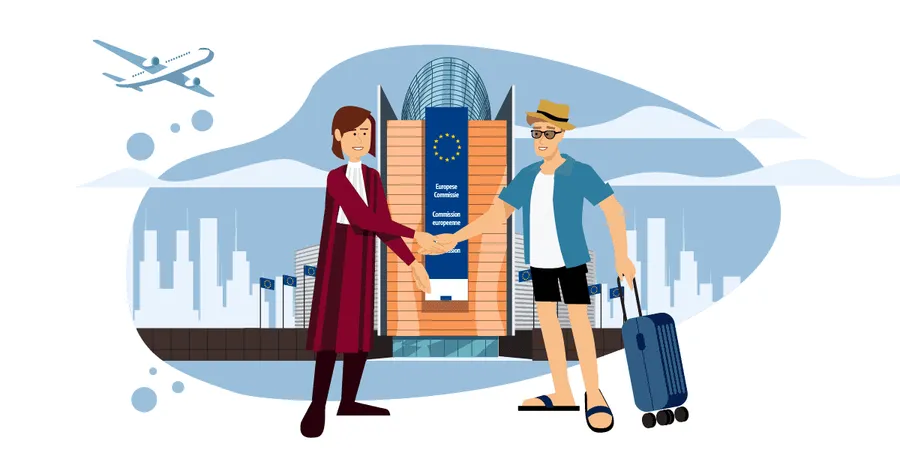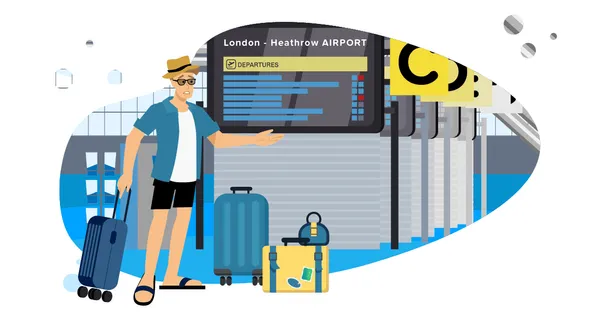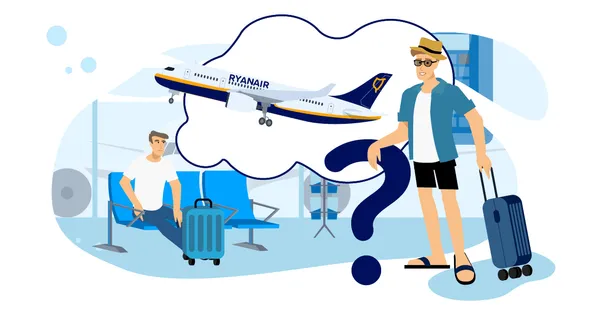
EU Regulation 261/2004 - what is it and what does it mean for air passengers?
A canceled or delayed flight is eligible for compensation if certain conditions are met. These are set forth in the Regulation of the European Parliament and of the Council of February 11, 2004.
Passenger rights according to EU261/2004 Regulation
The legal basis for filing a flight disruption compensation claim with the operating air carrier is Regulation EU261/2004, which conditions the rights of air passengers. It is a regulation establishing common rules for compensation.
Compensation is available when flight disruptions are not caused by extraordinary circumstances, but are due only to the negligence of the air carrier. In such situations, passengers can claim compensation. The regulation in question applies to international air transportation.
Regulation (EC) No. 261/2004 of the European Parliament and of the Council of February 11, 2004 repealing EEC Regulation No. 295 applies to every EU air carrier. It also outlines how to contact the designated national authority that upholds passengers' rights.
In which cases is the air carrier obligated to pay compensation?
According to the said regulation, air carriers are obliged to compensate aggrieved passengers in the event of denied boarding due to overbooking, as well as flight cancellation or long delay. This is because airlines are obliged to take all reasonable measures in each case to complete the flight connection on time.
However, if the plane arrives at its destination more than 3 hours late, passengers can claim compensation. Similarly, if the flight is canceled and the carrier fails to inform travelers at least 14 days before the scheduled departure date.
Flight disruption due to extraordinary circumstances
According to international air transport law, in the case of flights that are canceled or delayed for reasons beyond the air carrier's control, passengers are not entitled to compensation. External causes that disrupt a flight are known as extraordinary circumstances.
What are extraordinary circumstances?
Extraordinary circumstances are all events that prevent the aircraft from reaching its destination as planned, which are completely beyond the control of the airline. These include, but are not limited to, severe weather conditions, unstable political situation (e.g., riots), a strike by airport staff, as well as any technical malfunction of the aircraft that the airline was unable to prevent.
In a situation involving extraordinary circumstances, airlines are relieved of their obligation to compensate passengers. The burden of proving that a flight cancellation or delay is the result of external factors lies with the carrier. Moreover, airlines are obliged to inform passengers of the reasons for flight disruption.
Compensation for a canceled flight
In a situation where we find out that our flight has been canceled, we may feel confused. That is why it is so important to know the rights of passengers. The air carrier is obliged to inform passengers of the planned cancellation no later than 14 days before the scheduled departure.
If a flight is canceled at a later date, compensation is due to each passenger in accordance with applicable law.
Air carriers are also required to provide passengers with tickets for an alternative flight at the earliest possible date. In addition, airlines should provide transportation between the airport and the place of accommodation if the next flight is on a different date.
Compensation for delayed flight - scope of passenger rights
Airlines are obliged to take all reasonable measures to operate flights according to schedule. In the event of a long flight delay, the airline is also obliged to pay compensation. A flight is considered delayed if the aircraft arrived at its destination more than 3 hours late.
While waiting for a delayed flight, it is important to establish that passengers have been informed of the delay, and that appropriate care has been given to them while they wait for the plane to take off. Airline staff should allow passengers to make phone calls at the passenger check-in desk, as well as provide meals and drinks.
Passenger rights in case of denied boarding - overbooking
Regulation EU261/2004 also sets out rules for compensation and assistance in the event of denied boarding. This is because an air carrier may apply the principle of overbooking and sell more tickets for a flight than seats on board. As a result, travelers may be told at the boarding point that there is no seat on the plane for them.
In such a situation, they are also entitled to compensation. In addition, airlines should provide passengers with tickets for an alternative flight at the earliest possible date. The incidence of overbooking is decreasing, but it is worth bearing in mind that you are protected by the law if you are denied boarding.
Amount of flight compensation - EU Regulation 261/2004
Regulation (EC) No. 261/2004 of the European Parliament and of the Council of February 11, 2004 concerning flights repealing EEC Regulation No. 295, also specifies the amount of compensation for a disrupted flight. The amount of compensation depends on the distance the flight was supposed to travel. You can gain from 250 to 600 euros.
If you have experienced the aforementioned inconveniences and happen to have a disrupted flight, always claim your passenger rights. You can submit your claim to us and we will take care of all the formalities on your behalf. All you need to do is fill out the damage form available on our website.


